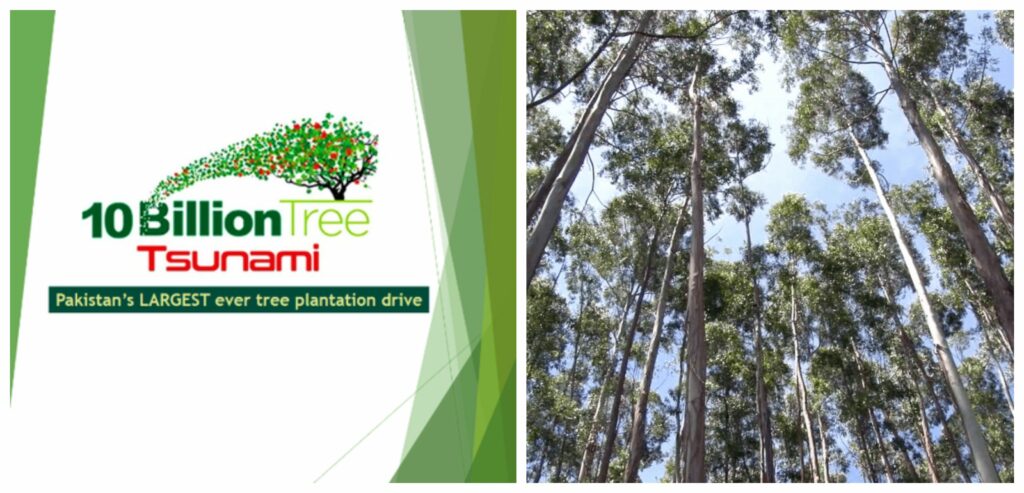Pakistan as a signatory of many international conventions and agreements is under numerous obligations related to the environment. However, the environment of Pakistan is under severe crisis which is degrading in many ways at an alarming rate, for instance, water pollution and scarcity, land pollution, air pollution, soil erosion, and deforestation. These deteriorated conditions also adversely affect the lives of common masses.
According to the Ministry of Climate Change in 2015, Pakistan had only 5% of land covered with forest while at present only 2.5% of the land is left with forest. In Asia, Pakistan has the highest deforestation rate per annum. Hence, the country is under ‘Green emergency’ which needs to be addressed on an immediate basis or else, Pakistan is expected to exhaust its natural resource of forests in the next 50 years. Under consideration of these threats and to combat the effects of climate change, the current government has taken measures to meet posed challenges. Under the PTI government, a policy of reforestation is adopted. ‘10 Billion Tree Tsunami’ is a project which aims to plant about 10 billion trees within span of five years. However, among the tree saplings that are being planted the ‘eucalyptus’ tree is of great concern which is likely to lead to the situation of ‘green desertification’.
Eucalyptus is considered to be a favorable plant species in most reforestation programs due to its fast growth and adaptability. These pros are why Pakistan government is excessively using eucalyptus in its reforestation programs. However, despite the heavy pros it also carries quite many cons that significantly outweigh the pros.

Eucalyptus affects the soil fertility, it kills the microorganisms that are vital for biodegradation, it also ruptures the natural process of germination, oil on its leaves is highly flammable and prevents birds from building nests which in turn pose threat to biodiversity and above all the water consumption, which can deplete a country from water if it is already having acute shortage of water. These cons were not considered by the policymakers as well as their emphasis on its timber value in the reforestation program is also of great concern.
Eucalyptus plant is planted in different countries because of its commercial value. It boosts paper Pulp and Timber industries. It is not favorable for usage in Environmental reforestation policies. This plant is native to Australia where the soil is not very fertile and climate is quite harsh than Pakistan, which is suitable for its growth but its plantation in highly fertile soil can be counterproductive. Patterns of rainfall are already disturbed in Pakistan due to Global Climate Change under such circumstances eucalyptus tree will only add fuel to the fire.
If the current situation continues there is little chance of improvement and the millions of dollars and thousands of hours put into the reforestation program will all be for naught. Therefore, it must be asserted with environmental and technical considerations. In this regard model of china can be adopted which is also using eucalyptus for its afforestation program but is also taking steps to manage its impacts on biodiversity and its water consumption.
It is now essential that Pakistan start acknowledging the effects this foreign tree is causing and take immediate actions by drafting proper policies and planning to turn this situation around in its favor to provide prosper and healthy environment to its generation to come as it initially was meant to.
Also Read: HORRIFYING: Why did Australia kill thousands of camels?

Frayal Qazi is a student of BS, International Relations at ND University. She based in Quetta and currently pursuing higher studies in Islamabad.

